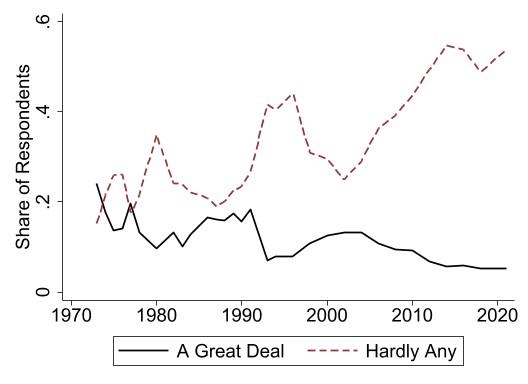In recent years, the landscape of professional football has been increasingly overshadowed by a growing sentiment of mistrust towards its governing bodies. Amid a series of controversial decisions, financial scandals, and allegations of corruption, fans around the world are voicing their concerns about the integrity of the sport they hold dear. This article explores the factors contributing to the decline of trust in organizations such as FIFA and UEFA, examining how mismanagement, lack of transparency, and perceived inequities are fueling skepticism among supporters. As the beatiful game grapples with its identity in an evolving global context, the discourse surrounding accountability and portrayal within football’s ruling authorities has never been more urgent.
Table of Contents
- Trust Erosion Among Football Fans: Analyzing the Root Causes
- The Impact of Governance Failures on the Integrity of the Sport
- Rebuilding Confidence: Recommendations for Improved Transparency and Accountability
- Engaging Stakeholders: The role of Fans in Shaping Governing Practices
- Future Outlook
Trust Erosion Among Football fans: Analyzing the Root Causes
The relationship between football fans and the sport’s governing bodies has deteriorated substantially in recent years, leading to widespread mistrust. As scandals and controversies have emerged, supporters are increasingly vocal about their discontent. Key factors contributing to this erosion of trust include:
- Lack of Transparency: Decisions affecting fans are often made behind closed doors, leaving supporters feeling disregarded.
- Financial Mismanagement: Instances of misuse of funds within governing bodies have raised concerns about the genuine investment in grassroots football.
- Player welfare Issues: Allegations of negligence towards player safety and mental health have made fans question the priorities of the organizations in charge.
Moreover, fan engagement initiatives are frequently enough perceived as superficial, leading to further disenchantment. Supporters feel that their voices go unheard, especially regarding issues such as ticket pricing and matchday experiences. This sentiment is reflected in the following table, which outlines the top grievances reported by fans:
| Grievance | Percentage of Fans Affected |
|---|---|
| High Ticket Prices | 75% |
| Poor Communication from Clubs | 68% |
| Misconduct from Officials | 55% |
Ultimately, the need for reform has never been more pressing. Governing bodies must recognize the deep-seated frustrations among fans and take actionable steps to rebuild trust. Creating a more open dialog and prioritizing supporter interests could significantly improve the relationship moving forward.
The Impact of Governance Failures on the Integrity of the Sport
In recent years, the integrity of football has come under intense scrutiny, primarily due to glaring governance failures within the sport’s governing bodies. The handling of high-profile scandals, lack of transparency, and insufficient accountability mechanisms have eroded the trust of fans worldwide. Many supporters feel detached from the sport, questioning the motives and decision-making of those in power.As they witness ongoing financial misconduct and mismanagement, it becomes evident that the repercussions of governance failings extend far beyond the boardroom, infiltrating the very essence of the game itself.
Key factors contributing to this decline in trust include:
- Corruption allegations: Numerous investigations have revealed corruption at various levels, tarnishing the reputation of organizations that are supposed to promote fair play.
- Lack of Transparency: Decision-making processes remain opaque, leaving supporters in the dark about key issues affecting the sport.
- Inadequate Responses to Scandals: Governing bodies have frequently enough been slow to act, leading to a perception of complicity or indifference regarding critical misconduct.
To illustrate the gravity of the situation, a recent survey conducted among football fans highlighted their concerns:
| Concern | Percentage of Fans Affected |
|---|---|
| Corruption in Governance | 78% |
| Inadequate Representation | 65% |
| Lack of Accountability | 72% |
These statistics reflect a disillusionment that could reverberate through the sport for years to come. As fans increasingly filter their experiences through the lens of ethics and governance, it is imperative that football’s governing bodies acknowledge these concerns and take meaningful actions to restore trust. Failure to address the underlying issues not only jeopardizes the sport’s integrity but risks losing a generation of passionate supporters who are vital to its future.
rebuilding Confidence: Recommendations for Improved Transparency and Accountability
To restore the fractured relationship between fans and football’s governing bodies, a comprehensive framework focusing on enhanced transparency and accountability is essential. This can be achieved through regular public reporting of decisions and financial allocations, ensuring that stakeholders are well-informed and can engage constructively. Additionally, the implementation of autonomous oversight committees can help to audit and review key decisions, as well as directly address fans’ concerns. Such bodies should include representatives from fan groups and independent experts, fostering an environment of inclusivity and trust.
Moreover, leveraging technology can play a pivotal role in increasing transparency across all levels of governance. Initiatives like online voting systems for meaningful decisions, real-time accessibility of meeting minutes, and the publication of detailed financial statements can empower fans by providing them a say in the governance process. A proposed schedule for these initiatives is as follows:
| initiative | Description | Timeline |
|---|---|---|
| Public Reporting | Regular updates on decisions and finances | Quarterly |
| Independent Committees | Audit and assess governance actions | Bi-annually |
| Online Voting | Platform for fans to vote on key issues | Annually |
| Financial Transparency | Accessible financial statements published | Yearly |
Engaging Stakeholders: The Role of Fans in Shaping Governing Practices
The role of fans in the football ecosystem has evolved from passive spectators to active participants in shaping the future of the sport. With their voices amplified by social media,fans are increasingly questioning the integrity and accountability of football’s governing bodies. This newfound activism has led to a collective push for transparency and reform, as supporters seek to reclaim their place in the beautiful game. Key areas driving fan engagement include:
- Accountability: Fans are demanding answers on how funds are allocated and decisions are made.
- Inclusivity: Efforts are being made to ensure diverse fan representation in governing discussions.
- Ethics: The push for ethical conduct is reshaping how clubs and federations interact with supporters.
In response to growing dissent, governing bodies are beginning to recognize the importance of engaging with fan communities. Some organizations are implementing initiatives to foster dialogue, such as town hall meetings and online forums. However, the effectiveness of these efforts varies, as many fans remain skeptical about whether these initiatives lead to substantive change. The table below illustrates recent fan-led campaigns aimed at reform:
| Campaign Name | Goals | Status |
|---|---|---|
| Fair Play Initiative | Promote financial transparency | Ongoing |
| Fans United | Increase fan representation | Campaigning |
| Save Our Clubs | protect small clubs from financial mismanagement | Triumphant |
Future outlook
As the landscape of football continues to evolve, the growing sentiment of distrust among fans towards governing bodies is a critical issue that cannot be overlooked.The calls for transparency, accountability, and genuine engagement with supporters reflect a broader desire for integrity within the sport. With fans increasingly vocal about their concerns, it is indeed now imperative for football’s governing bodies to address these issues head-on. failure to do so risks not only the future of the sport but also the very foundation of its fanbase. as the dialogue surrounding trust in football deepens, stakeholders must prioritize rebuilding these crucial relationships to safeguard the essence of the game that millions hold dear.The time for action is now, and the future of football may very well depend on it.





